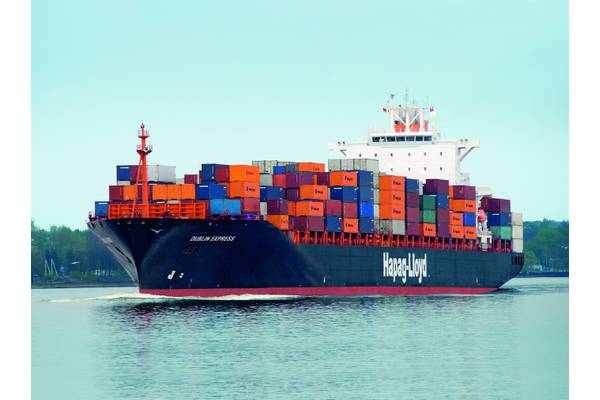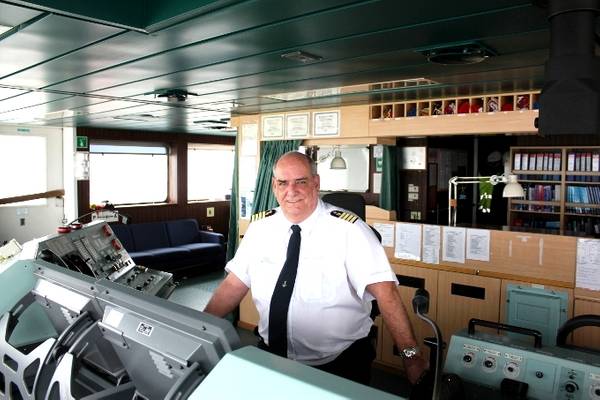Erwin Redeker has sailed the world’s oceans for more than 40 years. We spoke with the captain of the Dublin Express as he was about to leave Hamburg for the Caribbean.
When he inhaled his first sea breeze as a cabin boy on board a bulk carrier of North German Lloyd, Erwin Redeker dreamed about standing on a ship’s bridge as captain just once in his life. “Back then, I was still swabbing the deck,” recalls the 62-year-old. By now, he has sailed the seas as a captain for more than 20 years – and back on board Hapag-Lloyd ships since 2006.
These days, he sails for Hapag-Lloyd with “his ship,” the 281-meter-long Dublin Express (4,121 TEU), in the service between Hamburg and the west coast of South America. His next port of call will be Caucedo, in the Dominican Republic. The ship previously spent several weeks in the dry dock of a Hamburg shipyard for a thorough inspection. “It’s about time we got back to sea,” the enthusiastic captain said before the ship set out. After a certain amount of time on land, seafarers like him simply feel the pull of the sea.
Redeker’s special fascination with seafaring runs in the family. Already as a small boy, he loved listening to his grandfather’s stories about his time between the first and second world wars working for Hapag-Lloyd and North German Lloyd in Colombia, where Redeker was also born. “My father’s attempts to get me interested in seafaring were very clever,” he admits. “He proposed three jobs for me: baker, butcher or captain. In his view, those were the crisis-proof professions of the future. But since I didn’t want to have to get up early in the morning and I also couldn’t stand seeing blood, it was an easy decision to make,” he says with a grin. Discovering the world was a much more attractive option.
His career at sea began in the summer of 1968 with a holiday trip, on a longer “introductory” voyage for youths interested in seafaring, like the one still offered today by the German Shipowners’ Association. At that time, Redeker sailed across the Atlantic and back on the Breitenstein, a 150-meter cargo ship of North German Lloyd. Three years later, shortly after his application for a job at Hapag-Lloyd has been accepted, he was making his first big journey as a cabin boy on the Holstenstein training ship. To realize his dream of someday becoming a captain, Redeker first had to go back and earn his secondary-school and university-entrance degrees, complete his training at sea as a nautical officer assistant and earn a university degree in nautical sciences in Bremen before going on to work his way up from third officer to chief mate. At the age of 40, he finally fulfilled his dream: He was appointed to captain. “I’ve held all of the positions on board starting with cabin boy, and I learned from the bottom up,” Redeker proudly says. Nowadays, he enjoys sharing his valuable experiences with younger officers.
Over the course of his career, Redeker has experienced firsthand just how rapidly the shipping industry has changed. He can still remember a time when bulk carriers dominated the world’s seas. However, ever since the invention of the container and containerships, the pace of life on board has grown significantly faster. “Containerization really has taken away a bit of the romance of seafaring,” he says. For this reason, the captain particularly likes to think back to the time he spent on board bulk carriers. Back then, the berthing times in ports were much longer. “So it was also easier to go ashore and take trips to explore exotic islands, like Mauritius or the Seychelles, before the ship went back to sea,” he fondly recalls.
Next year, Captain Redeker will probably leave the bridge for good and enter into retirement. When that happens, he plans to devote time to his hobbies: sailing, bicycling and model airplanes. But he also plans to see more of Germany. After all, he already knows the rest of the world, and particularly its ports, like the back of his hand.





